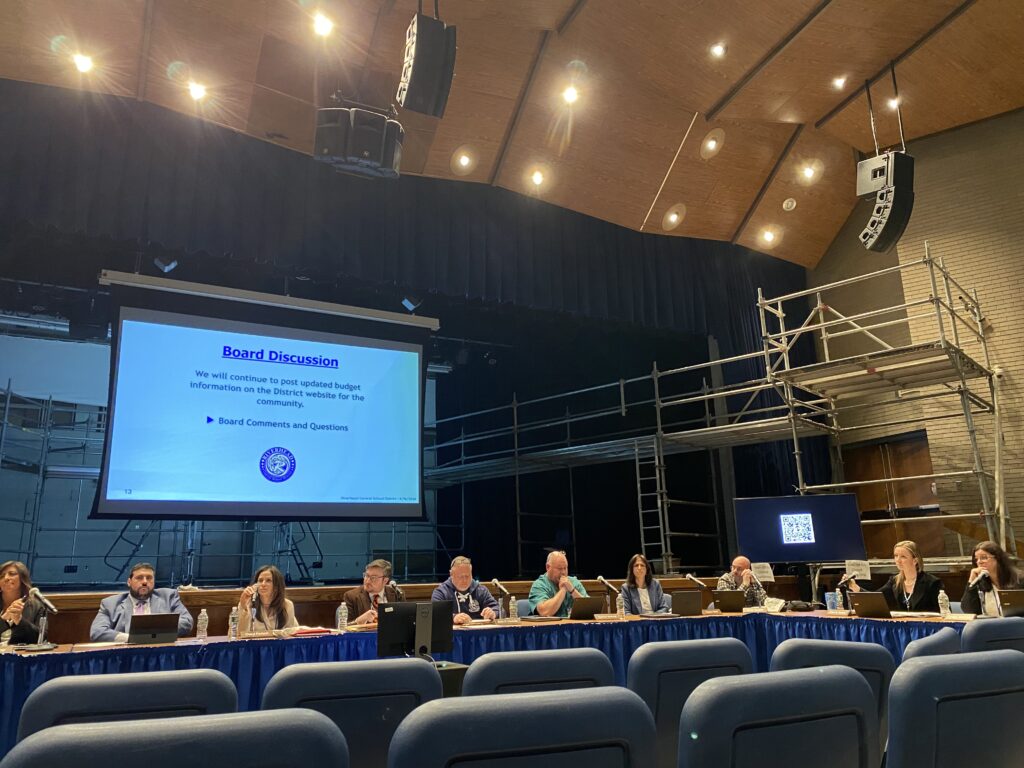Experts urge parents to discuss COVID vaccine with their child’s medical provider

The next phase of the fight against the COVID-19 pandemic is underway as children ages 5-11 are eligible to receive the vaccine and doses are now being administered to the latest cohort.
Dr. Sharon Nachman, chief of the Division of Pediatric Infectious Diseases at Stony Brook Children’s Hospital, encouraged parents to speak to their children’s medical provider about the vaccine.
“When your child is sick, who do you call? You call their medical provider and you follow their advice,” she said in an interview Monday. “Because they are the expert in your child’s medical care and you trust them for that. Listening to what’s happening on social media does your child and you a disservice.”
The U.S. Food and Drug Administration and the Centers for Disease Control and Prevention both approved the Pfizer-BioNTech vaccine for children ages 5-11 earlier this month, opening eligibility to about 1.5 million New York kids.
Suffolk County Executive Steve Bellone announced Tuesday that a vaccination clinic was opening at the H. Lee Dennison building in Hauppauge that will be exclusively for children ages 5-17. Children ages 12-17 had already been eligible for the vaccine. The vaccines will be free at the site, he said.
“I know some parents may have concerns about getting their children vaccinated,” Mr. Bellone said at a media event with County Health Commissioner Dr. Gregson Pigott and Deputy Health Commissioner Dr. Shaheda Iftikhar. “I am the father of three kids; two of them are vaccinated. But one of them up to this point has been ineligible — my son Michael.”
He said his son will be getting the vaccine soon and noted how his 80-year-old mother will have an added layer of protection for when she’s around her grandson.
Mr. Bellone also encouraged parents to speak to their child’s health care provider about the vaccine.
Peconic Bay Medical Center in Riverhead announced COVID-19 vaccination appointments for children ages 5-11 are available at the Robert Entenmann campus at 4 West Main St. on Sundays from 9 a.m. to 4 p.m. Appointments can be made by visiting pbmchealth.org.
Dr. Nachman said the setting for where a child gets the vaccine depends on where they’re most comfortable. She said distribution is underway to local pharmacies like CVS that have been administering doses to adults as well as pods such as the county-run site in Hauppauge.
“If their kid needs to have that quiet of the medical provider’s office, that may be an option to wait,” she said. “If their kid is perfectly OK to line up with 100 other children, then the pod is really good for them.
“There are options for different kids and we should take advantage of those different options.”
Vaccines for children are common and most children begin receiving vaccines for different diseases right after birth and continue all the way through age 18, according to the CDC.
Dr. Nachman estimated it would be a few weeks before distribution of the COVID vaccine is widespread and fully available.
She said Stony Brook Children’s Hospital continues to see young patients who have COVID, while the numbers are lower than adults.
“Each one of those kids represented another opportunity that was missed,” she said.
It’s been nearly a year since the first vaccine was made available for adults last December. Dr. Nachman said the delayed availability for children was part of a decision pharmaceutical companies made to complete and analyze data for adults first and then older children before beginning the youngest ages.
“It’s not like these [clinical] trials opened a year ago and no one enrolled, but rather they only opened in late spring, early summer and enrolled incredibly rapidly,” she said.
She said many parents were anxious and wanted to get their kids enrolled in a trial, knowing that even if the child received a placebo, the greater effect would mean vaccines available sooner.
Typically during a clinical trial for children, the fact that there may not be cases in the environment means it takes longer to see results, she said.
“We had an active virus pathogen still occurring and happening all the time in schools,” she said, which helped accelerate the process.
Side effects to the vaccine may be similar, but a little different than what adults experience, Dr. Nachman said. Similar side effects could be seen such as fatigue and fever. But it’s different in that kids ages 5-11 have lower rates of side effects, even compared to older children.
Dr. Nachman said vaccination rates for the older age group still have a “ways to go” but have improved since school started.
“Most families appreciated that in order for their kids to be safe, not only in school, but in extracurricular activities and competitions, they wanted their child to be vaccinated,” she said.
The most recent data from the state health department shows 57.6% of kids ages 12-15 are fully vaccinated. The number climbs to 66% for those 16-25. In Suffolk County, 48.3% of kids ages 12-15 are fully vaccinated and 69.3% of those 16-25.
Looking ahead, Dr. Nachman said she wasn’t sure whether the pharmaceutical companies would further divide eligibility for the youngest children who are not yet eligible into two more groups or keep to one. She said 6 months old would be the youngest a child may get vaccinated for COVID.
Dr. Nachman said she believes schools are doing a great job on vaccine messaging.
Local districts have not yet received any directives from the state regarding the latest vaccine eligibility. Southold School District Superintendent Anthony Mauro said the district is in the process of putting together a parent resources page on the district website for information not just limited to COVID-19 so it’s easier to find.








